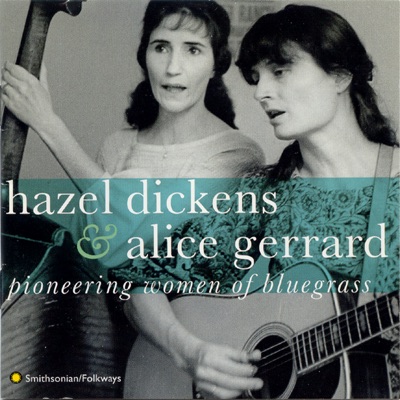

But it's Gerrard's slippery, hunted banjo and dulcimer in "Beaufort Jail" that's a clockstopper here. Gerrard's "Mary Johnson" is a feminist anthem about a woman's right to stop for a drink in a bar and not entertain the foul intentions of men: "What you see as want in my eyes in merely the reflection in your own." Dickens' "Ramblin' Woman Blues" states: "Take all that sweet talk and give it to give other girl/Who'd be happy to rock your babies/And live in your kind of world/For I'm a different kind of woman/Got a different set of plans/You know a ramblin' woman's/No good for a home lovin' man." The Louvin Brothers' "When I Loved You" and Jimmie Rodgers' "Mean Papa Blues" are innovative and soulful rearrangements in harmony. Neither woman takes any sh*t these are not broken-heart songs in any normal sense. Dickens' voice is more striking and dramatic, but there is a certain smoky, haunted sensuality in Gerrard's that makes it very distinct.

What is remarkable is how natural the pair sounds no matter what they're singing. Gerrard is a more traditional country and folk songwriter her tunes - such as the gorgeous "Mama's Gonna Stay" and "Mary Johnson" - are stitched through with pedal steel guitars alongside acoustic guitars that come from the honky tonk tradition. Dickens' songs - such as "Working Girl Blues," "West Virginia My Home," and "Ramblin' Woman" - come from the hardscrabble coal country where the old mountain music lives on in banjos, mandolins, and guitars. The amazing thing is that these women's songs could have been written in the 19th century as well as earlier in the 20th. Dickens and Gerrard's songs are showcased here alongside those of the Louvin Brothers, Jack Sutton, and some early traditional gems.

The second Rounder date by singers and songwriters Hazel Dickens and Alice Gerrard was issued two years after the first.


 0 kommentar(er)
0 kommentar(er)
